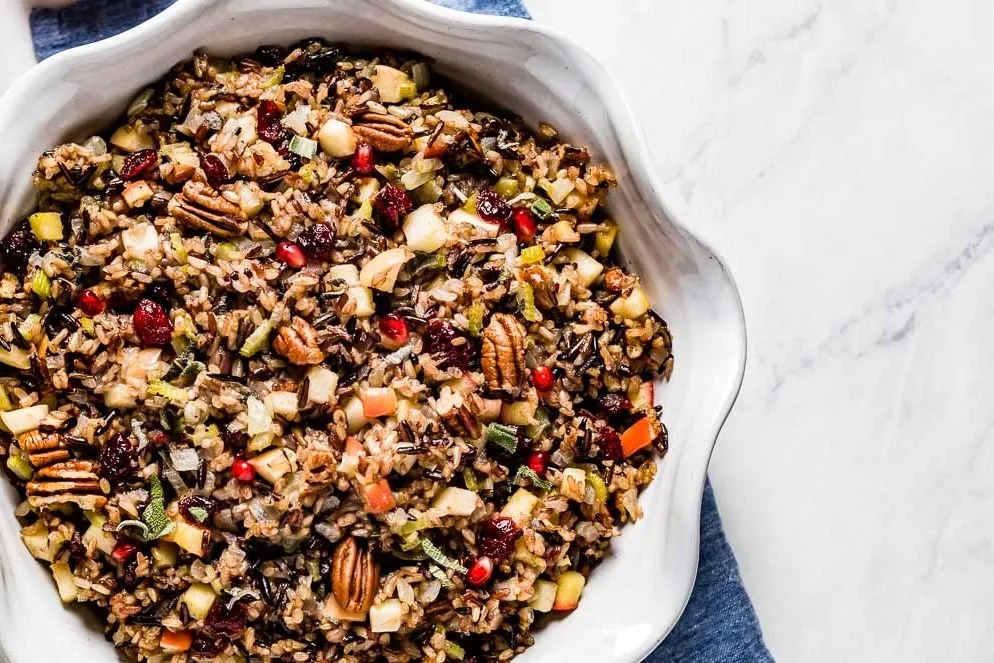There’s a real misconception that being ‘healthy’ requires major effort - an overhauled diet, an intense fitness plan or the perfect supplement regime. But the truth is, sustainable health is often built on simple, consistent habits. When done regularly, tiny changes to our day can compound over time to create a profound improvement in energy, mood, digestion, immunity, and more.
These changes matter because our bodies function rhythmically. In fact, every organism on Earth, from humans to single-celled amoebas, follows some form of biological rhythm. These rhythms evolved as adaptive responses to environmental cycles (like light and darkness or temperature changes) allowing organisms to anticipate and respond more efficiently to their surroundings. So whether it’s our circadian rhythm, digestive cycle, or hormonal fluctuations, we are literally wired for routine.
Behavioural neuroscience shows that the brain plays a key role in making habits stick. When a behaviour is repeated in response to a consistent cue, the brain strengthens neural pathways - particularly in the basal ganglia, the region involved in habit formation. Over time, the action becomes automatic, requiring less input from the decision-making areas of the brain like the prefrontal cortex. This means less mental energy is needed to maintain the habit, freeing up cognitive bandwidth and reducing the need for willpower.
A 2009 study published in the European Journal of Social Psychology found that it takes, on average, 66 days to form a new habit (though this varies depending on the behaviour and the individual). Crucially, the consistency of the cue and the behaviour matters more than perfection. That’s why low-effort, repeatable habits can be so powerful.
So, with that being said, here are five foundational habits that can support your health from multiple angles, backed by physiology, not fads. And the best part is that there’s no expense required - just consistency, intention, and a willingness to work with your body’s natural rhythms!
1. No Screens Before You Look at the Sky in the Morning
Start your day by exposing your eyes to natural light before looking at your phone, computer or TV. Morning light exposure helps regulate your circadian rhythm and promotes the production of serotonin, which later converts into melatonin - your sleep hormone. This natural cue tells your brain it’s time to wake up and supports a healthy sleep-wake cycle.
Avoiding screens first thing also helps preserve your brain’s natural alpha wave state - an alert but calm brainwave pattern that supports creativity and focus. Jumping straight into high-stimulus screen activity can trigger stress responses and dysregulate cortisol and blood sugar levels before you’ve even started your day.
If you’d like a few options for a healthy, optimal morning routine, look no further - try my free Morning Reset pdf here.
2. Go to Sleep and Wake Up at the Same Time Every Day
Sleep quality isn’t just about how many hours you get - it’s also about when you sleep. Research shows that maintaining a consistent sleep and wake time supports the body’s circadian rhythm more effectively than simply aiming for a set number of hours.
Irregular sleep patterns can disrupt hormonal rhythms, increase inflammation, and impair metabolic function - even if you’re technically getting enough sleep. A consistent routine helps regulate melatonin production, enhances deep sleep phases, and supports overall cognitive and immune health.
Find my free Evening Wind-Down Checklist here.
3. Sit Down to Eat and Take Five Deep Breaths Before Your First Bite
Digestion starts in the brain. When we eat on the go or while stressed, we activate the sympathetic “fight or flight” nervous system, which suppresses digestive function. Sitting down and taking five slow, diaphragmatic breaths (think inhaling horizontally into the throat) helps shift the body into parasympathetic “rest and digest” mode, allowing your digestive system to function properly.
This small pause before eating also improves interoceptive awareness - the brain’s perception of internal bodily signals - enhancing satiety cues and helping you eat the right amount for your needs.
4. Move for 15 Minutes, Three Times a Day
Frequent, low-intensity movement throughout the day can be more beneficial than one isolated workout. Gentle movement (such as walking, stretching or light yoga) activates skeletal muscles, which are crucial for blood sugar regulation and metabolic health.
It also helps stimulate lymphatic flow, supporting detoxification and immune function, and reduces stiffness and inflammation associated with prolonged sitting. Breaking up sedentary time every few hours re-energises the body and improves circulation to the brain, enhancing focus and mood.
5. Meet Your Daily Water Needs
Staying hydrated is foundational to virtually every physiological process in the body. Water supports digestion by helping to break down food, transport nutrients, and move waste through the gut. It also plays a role in appetite regulation - dehydration can increase perceived hunger and lead to unnecessary snacking.
Hydration also influences blood pressure, mental clarity, and mood. Even mild dehydration can impair cognitive performance and increase fatigue. Aim to sip water consistently throughout the day, and adjust your intake based on heat, exercise and body size.
I also recommend adding a pure unflavoured electrolyte to your water, to increase hydration, like Oshun liquid.
Bonus Habit: Cool Down for Better Sleep
As you prepare for sleep, your core body temperature needs to drop slightly. This decline is one of the body’s natural signals that it’s time to rest. Taking a lukewarm or cool shower before bed can help initiate this drop in temperature, preparing your brain and body for sleep.
Keeping a window open at night (weather permitting) not only supports this cooling process but also helps circulate fresh oxygen. During sleep, we exhale carbon dioxide, which can accumulate in stagnant air. A small amount of airflow helps maintain oxygen levels and may improve sleep quality, especially in stuffy rooms.
These habits may seem small, but notice that each one works with your biology, not against it. When layered together, they create a foundation of metabolic balance and resilience. And the best part? They cost nothing, and don’t require drastic changes to your life! In the end, your health is built on what you do most days, not what you do occasionally. These simple actions can become the anchors of your daily rhythm - and your long-term vitality.
If you’re struggling with forming consistent, healthy habits, or would like to find the right habits for you, and would like some expert advice, please don’t hesitate to reach out. You can book a confidential quick consult with me here for an immediate discussion, or opt for the Optimal Health (call or email based), for personalised nutritional and lifestyle guidance over four sessions, in addition to any targeted supplements.
.jpg)

.png)



.jpg)
.png)



.jpg)
.jpg)
.jpg)
.jpg)
.jpg)
.jpg)
.jpg)
.jpg)
.jpg)
.jpg)
.jpg)
.png)
.png)

.png)
.jpg)

.png)
.png)
.png)
.png)
.png)


.png)
.png)






